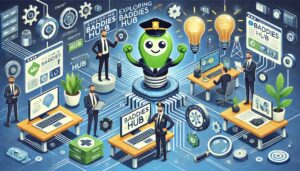Geek-forcenetwork.com 2024 in the last decade, geek culture has undergone a remarkable transformation, evolving from a niche interest into a dominant force within the realm of mainstream media. This phenomenon encompasses a wide range of interests, from comic books and video games to sci-fi and fantasy films. The implications of this shift extend beyond entertainment; they reflect a broader societal change in how stories are consumed, how communities are formed, and how representation is addressed. Let’s explore the multifaceted ways fandoms are shaping modern media and culture.
The Power of Fandoms
Fandoms represent communities that revolve around shared passions for specific media. These communities often develop rich cultures characterized by creativity, enthusiasm, and collaboration. Fans participate in various activities, including cosplay, fan art, and writing fan fiction, which allows them to express their love for the source material and connect with others.
The Role of Social Media
Social media has revolutionized fan engagement, providing platforms for fans to express their thoughts and opinions instantly. Platforms like Twitter, Instagram, and TikTok serve as vibrant spaces for discussion, creativity, and promotion. Hashtags allow for the organization of conversations, while fan theories and memes proliferate, creating a dynamic dialogue between creators and audiences.
The Impact on Media Production
As fan engagement has intensified, media producers have recognized the commercial potential of dedicated fandoms. The resounding success of franchises like the Marvel Cinematic Universe (MCU) and the revitalization of the Star Wars franchise underscore the value of content that resonates with established fan bases. Studios now invest significant resources in properties that have a pre-existing fan following, leading to a proliferation of reboots, sequels, and spin-offs.
Crowdsourced Creativity and Fan-Driven Projects
The rise of crowdfunding platforms like Kickstarter and Indiegogo has empowered fans to directly support projects that resonate with them. This has resulted in the creation of indie films, comics, and games that might not have seen the light of day through traditional studio systems. Notable examples include the successful revival of “Veronica Mars” and the documentary “The Last Blockbuster,” both of which were funded through fan contributions.
Diversity and Representation in Geek Culture
One of the most significant transformations within geek culture is the increasing demand for diversity and representation. Fans are vocal about their desire for characters and narratives that reflect a broader spectrum of experiences and identities. This push has led to substantial progress in how stories are crafted, with an emphasis on inclusion.
Case Study: Marvel’s Approach
Marvel’s commitment to diversity has resulted in the introduction of characters like Ms. Marvel (Kamala Khan), the first Muslim superhero to headline her own comic series, and Black Panther (T’Challa), who brought significant cultural representation to the big screen. These characters not only enrich the narrative tapestry of the Marvel universe but also resonate deeply with fans who see their own identities reflected in these stories.
The Importance of Authenticity Geek-forcenetwork.com 2024
Beyond just representation, there’s a growing awareness of the need for authentic storytelling. Fans are increasingly discerning, pushing back against tokenism and demanding that narratives are crafted with genuine cultural understanding. This has led to collaborations with creators from diverse backgrounds, resulting in richer, more nuanced storytelling.
The Role of Streaming Services
The rise of streaming services has dramatically altered how fans consume media. Platforms like Netflix, Disney+, Amazon Prime Video, and others have made vast libraries of content accessible to viewers at their convenience. This shift has democratized access to a variety of genres, enabling niche interests to flourish.
The Binge-Watching Phenomenon
The ability to binge-watch entire seasons has redefined storytelling in television. Showrunners now create narratives designed for sustained engagement, often employing cliffhangers and intricate plotlines that encourage viewers to keep watching. This format has led to the creation of highly serialized stories that appeal to dedicated fans, who can delve deeply into the narrative world over extended periods.
The Future of Geek Culture
As technology continues to advance, the future of geek culture appears bright and full of possibilities. Emerging technologies like virtual reality (VR) and augmented reality (AR) hold the potential to transform how fans experience their favorite stories.
Immersive Experiences
Imagine stepping into the world of your favorite franchise, exploring a meticulously crafted environment that immerses you in the narrative. With VR and AR technologies, this dream is becoming increasingly attainable. Projects like “Star Wars: Secrets of the Empire” allow fans to physically interact with the story, providing a level of immersion that traditional media cannot achieve.
The Globalization of Geek Culture
Geek culture is no longer confined to its origins in Western media; it has become a global phenomenon. Countries around the world are producing their own interpretations of geek culture, contributing unique narratives and perspectives. This globalization enriches the overall landscape, leading to cross-cultural collaborations and a diverse array of stories that resonate with a wider audience.
Example: The Rise of Anime and Manga
The increasing popularity of anime and manga illustrates this globalization. Shows like “Attack on Titan,” “Demon Slayer,” and “My Hero Academia” have garnered massive followings outside Japan, influencing Western animation and storytelling techniques. The integration of these influences into mainstream media highlights the growing acceptance and appreciation of diverse storytelling traditions.
Conclusion
Geek culture has transcended its niche origins to become a vital part of the entertainment industry and societal discourse. Fandoms have the power to shape narratives, drive inclusivity, and foster community connections. As we look to the future, it is clear that geek culture will continue to influence the stories we tell and how we engage with them. Whether you’re a lifelong enthusiast or just beginning to explore this vibrant world, one thing is certain: the geek shall inherit the earth, and the journey is just beginning. For more detail please visit techwebinsights.com





